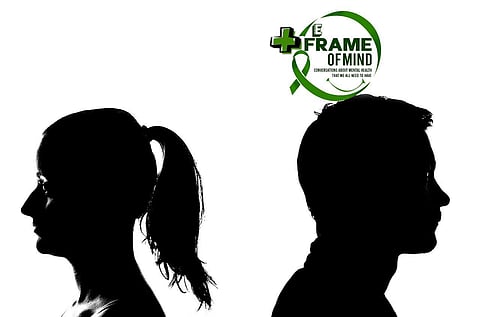

The words ‘isolation’ and ‘distance’ have been used more frequently in the last few months, due to it being the only foreseeable preventive and curative form of care during the pandemic. While science and researchers have studied and proven the effectiveness of this, science has also studied how this appears to be counter-productive to one specific aspect of care - mental health.
The pandemic has also proven that a huge aspect of care comes from everything ranging from watercooler conversations to being around strangers in public to hugs. In short, relationships can have a huge impact on mental health. This is also one of the reasons why a bad relationship or one that proves to be toxic has the potential to change all our relationships and our general worldview.
While the indicators or signs of an unhealthy relationship can be varied, the very first sign usually comes from not feeling good about it. Healthy and supportive relationships can have the power to instantly lift our moods, which is why we might tend to reach out when we don’t feel good. If there are feelings of fear or worry or tip-toeing around the person or the feeling of constantly walking on eggshells, that isn’t a good sign.
Along with this also comes feelings of not being a good enough person, which impacts other areas of our lives. This might also happen because relationships that are unhealthy also tend to not be predictable, stable or maintain a status quo. The fear or worry initially stems from either unpredictability or extreme reactions or actions. If the love and support are intense, the other extreme can get extremely intense as well. As a result of behaviours that constantly swing between extremes of multiple spectrums, the trajectory of the relationship starts looking unstable. This is also something that becomes visible to others around and outside the relationship and more often than not, leads to conversations about concerns of safety.
The trajectory of the relationship is one of the many reasons why it is also extremely difficult to leave a relationship. The feeling of helplessness and staying in the hope of change, purely because the person has displayed extreme affection and understanding, might hold people in the relationship for long periods of time.
The signs of a toxic relationship and how to get out of one are very closely knit together. One of the ways to get out of a relationship that is toxic is to begin questioning our ideas of relationships and listen to the feelings of discomfort. While they may be present, there is a tendency to not listen to feelings of discomfort because they often render us feeling helpless. Listening to them helps recognise them and reach out for help. The presence of a good support system would also ensure that the pain of leaving a relationship would be shared and supported by them. While this is also not a privilege that many can afford, professional services in the form of helplines, therapists and organisations with well-trained professionals exist to ensure the process of reaching out is the first step towards healing and recovery.
Aside from these steps, one noteworthy point is that our culture supports the value of staying together by enduring and being adjusting in relationships. Regardless of the nature of the relationship, the idea of being with someone is usually preferred and reinforced by society. The idea of having a good personal life is frequently associated with someone and more often than not, being in a romantic, heterosexual relationship.
This is also true for non-romantic, non-heterosexual relationships, friendships, romantic relationships, staying in workplaces that
become toxic and even families that sometimes create a toxic environment. These values are often upheld at the cost of mental health and enduring toxic behaviour. Hence breaking down and questioning these value systems that hold us accountable to society is a collective responsibility that must be undertaken by everyone. If we look even a little further from the problem, our legal system allows for power dynamics such as requiring a male figure to carry on certain proceedings or even allowing for marital rape are loopholes that allow for and reinforce toxicity.
While these systems allow for or toxic relationships to continue to exist, there are also organisations, lawyers and professionals fighting to raise awareness and change the system. There also need to be more people supporting this fight and this voice because care is a collective idea that needs to be created by more than one person. When these ideas and voices exist, the power of toxic relationships and behaviours automatically will reduce and make it easier to call them out and end these relationships.
The author is a Chennai-based counselling psychologist and is part of the Tangent Mental Health Initiative
The opinions expressed here are her own
